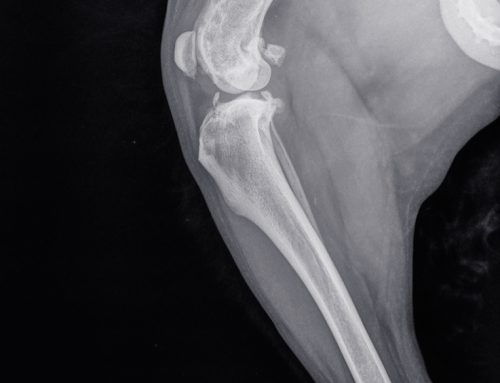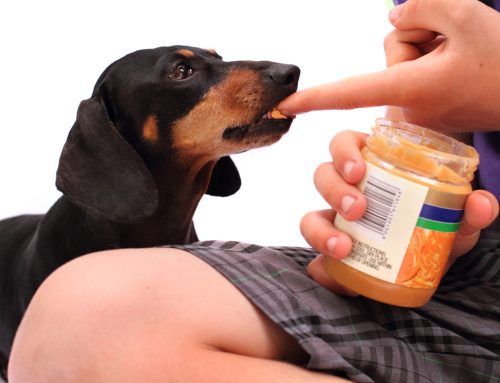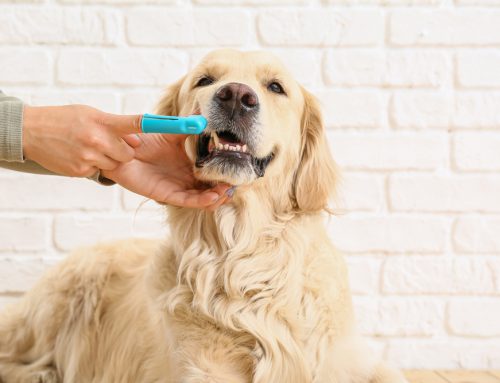With approximately two-thirds of dogs and cats age 3 and older suffering from varying levels of dental disease, prioritizing your pet’s oral health is crucial from the get-go. But, how can you prevent this debilitating disease from developing? Your Scripps Ranch Veterinary Hospital team can help. Here are our top five tips to help you get started.
#5: Address your pet’s teeth early on
While your puppy or kitten’s deciduous (i.e., baby) teeth won’t last forever, the habits you instill during your pet’s early days will. Research shows that juvenile pets who are introduced early to handling, touching, and different types of training become more flexible and well-mannered adults—including their tolerance for toothbrushing and oral examinations. If your pet falls into a breed category prone to severe dental disease or other oral problems, such as certain toy breeds, or brachycephalic pets, these desensitization practices are especially important. Don’t expect that your young pet will allow a thorough teeth cleaning, but small efforts to simply—and safely—touch their gums, introduce a toothbrush, or taste pet-safe toothpaste will eventually pave the way for a carefree experience. And, don’t forget to bring your puppy or kitten to Scripps Ranch Veterinary Hospital for their routine wellness care, so they can become accustomed to us examining their mouth, too.
#4: Familiarize yourself with dental disease signs in pets
Many pet owners are shocked when their veterinarian tells them their pet has dental disease. Since most don’t regularly look inside their pet’s mouths, they miss the evidence of plaque, tartar, and gingivitis. But, taking the time to peek in this area will help you catch early—or late—disease signs. Worrisome signs that may signal a dental or oral problem include:
- A yellow film on the teeth
- Hardened brown or tan material on the teeth, especially near the gum line
- Red or bleeding gums
- Bad breath
- Loose or missing teeth
- Pain when eating, or food falling from the mouth
- Excessive drooling
- Blood on toys, bedding, or in the water bowl
#3: Understand the importance of routine dental care in pets
Ensuring your pet receives, at a minimum, annual professional dental care, along with an at-home dental hygiene regimen, is beneficial for multiple reasons. Here are a few:
- Dental disease is painful — Despite the fact that many pets with advanced dental disease continue to eat and act normally, this condition is extremely uncomfortable. If you’ve ever experienced a sore gum area, or a tooth-root infection, you understand how unpleasant oral pain can be. Our pets feel this pain, too. And, since they often suffer in silence and show no signs, their discomfort can last for months, or sometimes years.
- Dental disease impacts other body areas — That’s right. Untreated dental disease is not only agonizing for your pet, but can also lead to heart inflammation, and kidney, or liver problems, to name a few.
- Treating dental disease becomes more costly the longer you wait — Putting off that preventive dental cleaning may cost you more in the long run, when your pet needs tooth extractions, antibiotics, and other advanced treatments and medications to address their dental problem.
#2: Choose an at-home dental regimen that works for you
Toothbrushing is by far the most effective way to keep dental disease at bay, but is only truly advantageous if performed at least three times per week, but ideally, every day. However, this ideal option may not be feasible for owners of ornery, stubborn, or downright aggressive pets. Thankfully, alternative options, including oral rinses, dental wipes, and water additives, minimize bacterial buildup on the teeth, and help keep plaque and tartar at bay. If you are unsure which products may be a good fit for you and your pet, consult our veterinary team, and always choose products accepted by the Veterinary Oral Health Council.
#1: Visit Scripps Ranch Veterinary Hospital for a dental check-up

The most important step in ensuring your pet’s mouth and body stay in tip-top shape? Scheduling routine consultations with our Scripps Ranch Veterinary Hospital team. During a dental appointment, we will thoroughly examine your pet, offer laboratory tests, and complete a comprehensive oral assessment and cleaning. With the help of anesthesia and X-rays, our team will clean underneath the gum line where dental disease hides, and accurately pinpoint concerning areas in your pet’s mouth. While some dogs and cats may need a dental examination and cleaning only once a year, at-risk pets may require more frequent visits. Our team can help you decide on the best schedule for your individual pet. One thing is for sure—professional veterinary dental care has no substitute.
Are you ready to schedule an oral health appointment for your pet? Contact us at Scripps Ranch Veterinary Hospital to set up a consultation, and get your pet on the road to a happy, healthy mouth.





Leave A Comment